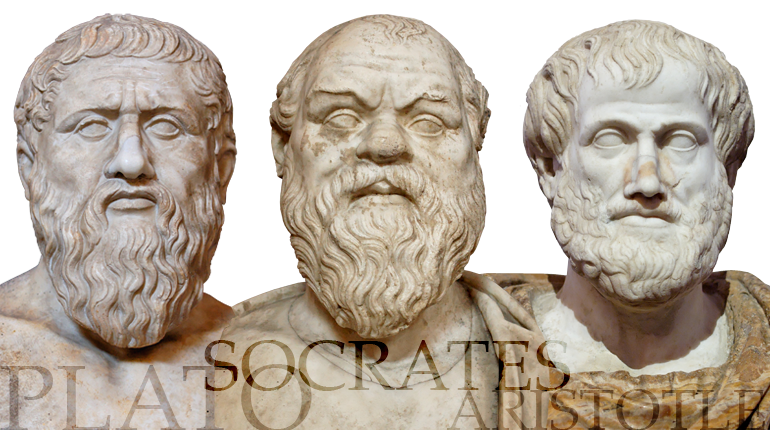 In a humbling perspective, the presence of man as a thinking, actionable being in the scope of time as compared to bacteria as the first living organisms seeking interaction with their environment is a pittance. The relationship of a few score of thousands of years to the greater than three billion years that bacteria have survived takes shape when one compares it to some objective knowable reference. In perspective of time as distance, if thinking man were walking in the same travelled steps that bacteria have already taken referenced to the three thousand mile distance between Los Angeles and Chicago, man as a rational creature would occupy only the last 20 feet of the journey. This brief presence hardly seems worthy of historical adulation, but it is of course the impact made by this relatively new participant to history that makes man’s action so worthy of study.
In a humbling perspective, the presence of man as a thinking, actionable being in the scope of time as compared to bacteria as the first living organisms seeking interaction with their environment is a pittance. The relationship of a few score of thousands of years to the greater than three billion years that bacteria have survived takes shape when one compares it to some objective knowable reference. In perspective of time as distance, if thinking man were walking in the same travelled steps that bacteria have already taken referenced to the three thousand mile distance between Los Angeles and Chicago, man as a rational creature would occupy only the last 20 feet of the journey. This brief presence hardly seems worthy of historical adulation, but it is of course the impact made by this relatively new participant to history that makes man’s action so worthy of study.
We have in today’s society a rather arrogant view of our current knowledge base, as if it is infallible and purified to a level of perfect reason, that would make spending time to reflect upon ideas in perspective to past thinkers unworthy. We see it in such comments as global warming as “settled science”, the Constitution as “outdated”, and the study of philosophy and history less worthy than psychology and social science to “understand” ourselves. This concept of all that has come before as immaterial to modern thinking unless in agreement with modern thinking, is a disease that has pervaded our entire educational system. The current common belief is that a crucial component of modern life is a college degree, with little if any focus on what the degree actually comprises or contributes to modern society. The college graduate of today after 16 years of layered education foundation struggles to recall half of the critical elements of knowledge that codify his or her freedom, or form the basis of reason or literacy. They graduate from a campus that often has an entire faculty uniform in its political correctness and opinions regarding major societal issues. The sharing or weighing of ideas comes under extreme stress from those who would suggest that the answers are already confirmed, and that education’s role is to instruct individuals on how to continue to uphold, protect, and at most, perfect immutable facts and theorems.
Perhaps it is the guilty recognition of how far we have fallen in our pursuit of age old concepts of virtue, reason, and truth, that has led to the adulation that was conferred this past week on one the last warriors for time honored educational development of an individual, Yale University’s Professor Donald Kagan. PowerLine presented for review this week Dr. Kagan’s final lecture at Yale, regarding the evolution of critical thought and its current state in the modern educational process. Dr. Kagan, one of the world’s most prominent authorities on the ancient Greek city state and the epic issues surrounding the Peloponnesian war, has been a lonely voice for diversity of thought on campus, and has come up hard against the entrenched interests that pervade modern universities and seek to suppress thought and education to students that don’t fit their pre-determined “truth”. Dr. Kagan has argued for decades for a core curriculum for western civilization at universities to assure all students the background and principles that would allow them to better understand and uphold their responsibilities in a western society. He sees no prejudice in teaching the roots of reason and truth, laws and obligations, religion and natural science, democracies and republics in the fashion of a student capable of putting these foundational principles to work in whatever they eventually determine to study. The overwhelming logic of his argument is the primary argument against it applied by the educational forces in power. To accept the huge amount of intellect and reasoned argument that form the centuries of development and success of western ideals, would be to accept their superiority, and that is a concept the entrenched powers will never accept.
Dr. Kagan is acknowledged to be one of those great formative teachers, like Socrates, Plato, and Aristotle before him, who are able to take obtuse subjects and make them an understandable and relative to the student, in such a way that the teacher becomes their pathfinder to knowledge that is permanently relevant in their lives. In an educational world where teachers have been required to achieve higher and higher educational degrees, and their students are showing less and less understanding and competence, appreciating a giant in the ancient science of teaching is a pleasure indeed. Watch below how Dr. Kagan introduces why understanding the ancient Greeks are critical to who we are in his introductory Greek History course at Yale and you will be returned to the power and life changing experience that a great teacher can provide. Professor Donald Kagan is Ramparts People We Should Know #24, because what we should know to be relevant in our own lives has been a lifetime’s vision of this exceptional teacher.
